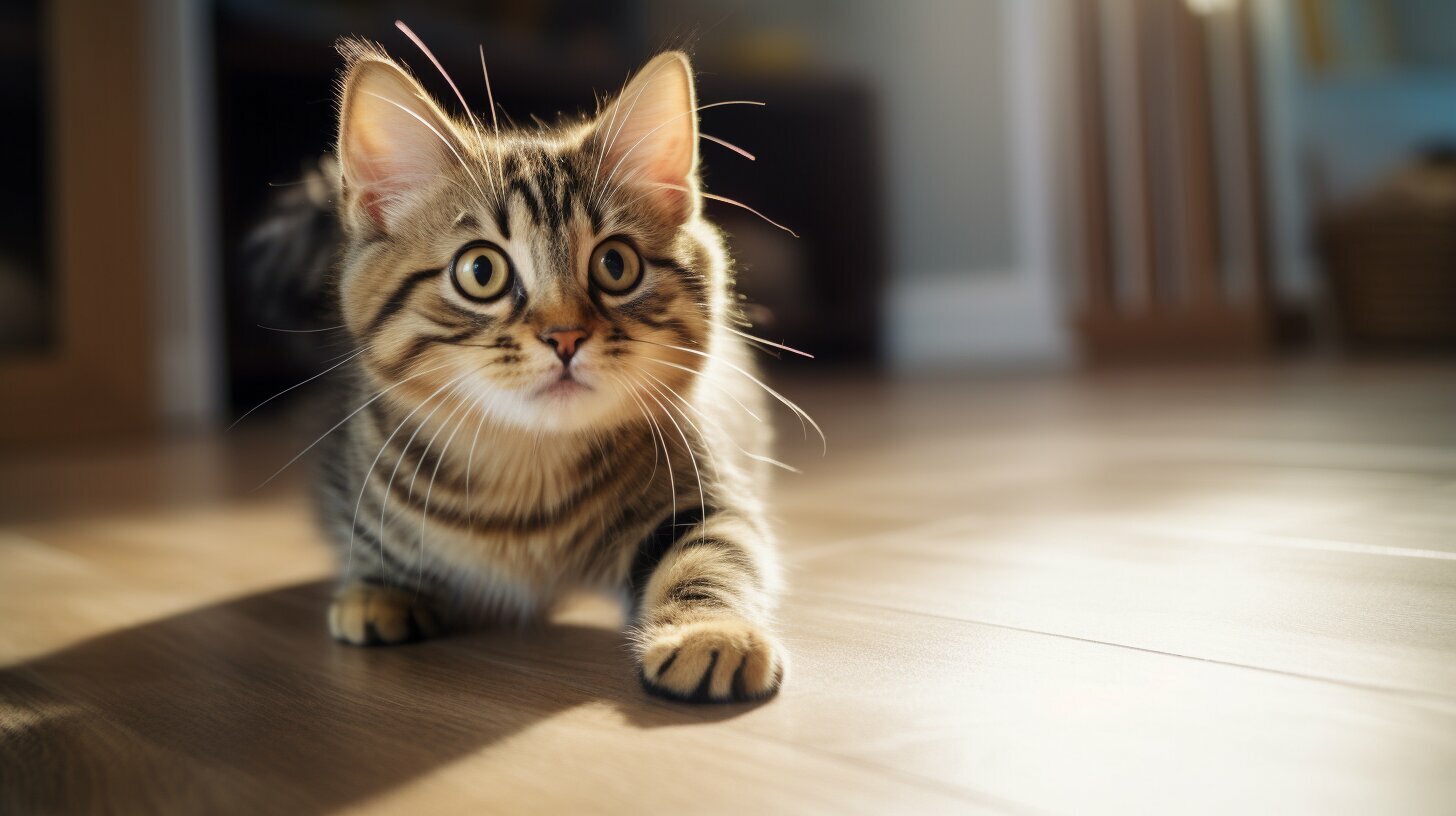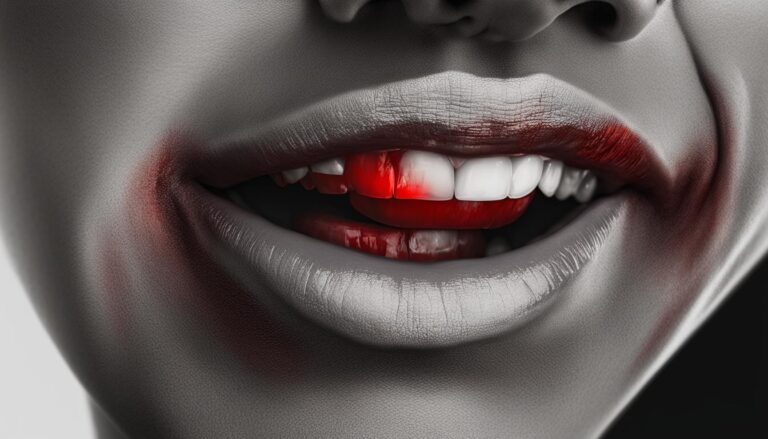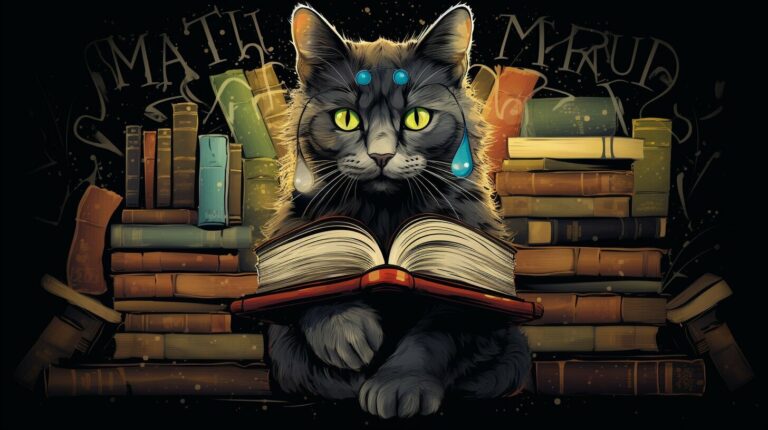Decoding Feline Quirks: Why Do Cats Eat Hair? Uncover the Mystery!
Have you ever wondered why cats have a tendency to eat hair? It’s a perplexing behavior that often leaves us scratching our heads. But fear not, my fellow feline enthusiasts, for today we embark on a journey to unravel this mysterious habit. Get ready to dive into the world of cat hair consumption and discover the reasons behind it!
Key Takeaways:
- Cats may eat hair due to affection, stress, boredom, playfulness, nutritional deficiencies, early weaning, pica, or anxiety.
- They may view hair as a toy or be attracted to scented hair products, leading to excessive hair consumption.
- Hair eating can be a cry for attention, signaling the need for interaction and engagement.
- Providing mental stimulation, addressing underlying issues, and offering a balanced diet are crucial in preventing hair eating behavior.
- Cats eating hair can lead to the formation of hairballs and potential health concerns, so redirecting the behavior and seeking veterinary advice when necessary is essential.
Understanding the Fascination: Reasons for Cats Eating Hair
Cats eating hair can stem from a variety of causes, ranging from affectionate tendencies to underlying health issues. It’s a behavior that may seem strange to us humans, but it’s actually quite common among our feline friends. Let’s take a closer look at some of the reasons why cats engage in this peculiar habit.
Affection and Playfulness: Cats are known for their independent nature, but they also crave attention and affection from their owners. Some cats may view hair as an extension of their human’s scent, making it a comforting and familiar object to chew on. In addition, cats have a playful side, and hair can become their toy of choice. So, if you catch your furry pal nibbling on your locks, they may just be trying to engage in a game with you!
Attraction to Scented Hair Products: Cats have a keen sense of smell, and they can be quite attracted to the scents of our hair products. The enticing fragrances may entice them to explore and even taste our hair. While it may be amusing to see them sniffing around, it’s important to keep an eye on their behavior to ensure they don’t consume excessive amounts of hair.
Underlying Health Issues: In some cases, cats may eat hair due to underlying health issues such as pica or anxiety. Pica is a condition where cats have an abnormal craving for non-food items, including hair. If you notice your cat excessively consuming hair or engaging in other unusual behaviors, it’s crucial to consult with a veterinarian. They can help identify any underlying health issues and provide appropriate treatment options.
| Reason | Explanation |
|---|---|
| Affection and Playfulness | Cats chew on hair for comfort and engage in playful behavior. |
| Attraction to Scented Hair Products | Cats are drawn to the enticing fragrances of our hair products. |
| Underlying Health Issues | Pica or anxiety can cause cats to consume hair excessively. |
While cats eating hair may seem harmless, it can lead to several health concerns, including the formation of hairballs and potential digestive issues. To prevent these problems, it’s essential to redirect their behavior through play and provide mental stimulation. Introducing interactive toys and puzzles can help keep your furry companion entertained and discourage them from munching on hair. Additionally, ensuring a balanced diet with proper nutrition can help address any nutritional deficiencies that may contribute to this behavior.
Remember, it’s important not to reinforce the behavior by giving in to your cat’s demands for hair or scented hair products. Instead, focus on redirecting their attention and providing alternative outlets for their energy and affection. If you’re concerned about your cat’s hair-eating habits or notice any unusual symptoms, it’s always best to seek veterinary advice. They can provide further guidance and ensure the well-being of your beloved feline friend.
The Playful Side: Hair as a Toy for Cats
For some cats, hair can be as entertaining as a toy, leading to excessive ingestion during playtime. It’s not uncommon to find your feline friend batting at loose strands of hair, pouncing on them with delight. But why do cats see hair as a plaything? The answer lies in their natural instincts and the tactile stimulation that hair provides.
In the feline world, movement grabs their attention. Hair, with its flowing and unpredictable nature, becomes an irresistible target for playful cats. They might chase it, bite it, or even try to catch it mid-air. This behavior mimics their predatory instincts and taps into their innate need for stimulation and exercise.
While play is important for a cat’s mental and physical well-being, excessive hair consumption can pose a risk. This is especially true for long-haired breeds that are more prone to hairball formation. To ensure your kitty’s safety, it’s essential to redirect their playful energy towards appropriate toys and engage them in interactive play sessions that provide both mental and physical stimulation.
| Cat Hair Play Tips: |
|---|
|
|
|
|
Remember, when it comes to your furry friend’s playtime, safety should be a top priority. By encouraging appropriate play behavior and providing suitable alternatives to hair, you can help prevent excessive hair consumption and ensure that your cat enjoys a happy and healthy life.
Tangled Up in Affection: Cats and Scented Hair Products
Cats’ fascination with scented hair products can explain their tendency to indulge in hair consumption. The alluring fragrances from shampoos, conditioners, and hair sprays pique their curiosity, making hair an irresistible target for exploration. As we know, cats have an innate attraction to scents, and the aroma of scented hair products may trigger their natural instincts.
While some cats may simply enjoy rubbing against scented hair or grooming themselves near it, others take their fascination a step further by nibbling or chewing on the strands. This behavior can be seen as a form of scent marking, where they leave their own scent on the hair to establish territory or communicate with other cats.
To address this behavior, it’s essential to provide alternative outlets for their scent marking needs. Engaging cats in interactive play sessions, such as using puzzle toys or providing scratching posts with catnip, can redirect their attention away from hair and onto more appropriate activities. Additionally, offering a variety of scented toys or introducing feline-friendly scents, like catnip or valerian, can help satisfy their olfactory needs.
It’s important to note that if your cat’s hair consumption becomes excessive or you notice any concerning symptoms, it’s crucial to consult a veterinarian. Excessive hair consumption can lead to digestive issues, blockages, or nutrient deficiencies. A balanced diet that meets your cat’s nutritional requirements is fundamental in preventing this behavior and promoting overall feline health.
| Possible Causes of Cat Hair Consumption | Prevention and Management |
|---|---|
| Anxiety or stress | – Provide a calm and enriching environment – Use pheromone diffusers or calming supplements |
| Boredom | – Offer interactive toys and playtime – Provide scratching posts and climbing structures |
| Nutritional deficiencies | – Ensure a balanced diet for your cat – Consult a veterinarian for dietary advice |
| Pica | – Identify any underlying health issues or behavioral causes – Consult a veterinarian for a thorough evaluation |
In conclusion, understanding the reasons behind cats’ hair consumption can help us better address and manage this behavior. Cats’ fascination with scented hair products, coupled with their natural instincts, can lead them to indulge in hair consumption. By providing appropriate outlets for their scent marking needs and ensuring a balanced diet, we can redirect their behavior and promote their overall well-being.
The Need for Attention: Cats and Hair in the Social Context
Cats may resort to eating hair as a means of seeking attention from their human companions. This behavior can be traced back to their innate desire for social interaction. Like humans, cats have their unique ways of communicating their needs and desires. They may engage in unusual behaviors, such as hair consumption, to capture our attention and engage us in play or affectionate interactions.
As amusing as it may seem, cats view hair as an intriguing object that carries the scent of their human companions. They may see it as an opportunity to leave their mark, asserting their presence and establishing a connection. It’s their way of saying, “Look at me!” and inviting us to respond with love, playfulness, and interaction.
To prevent cat hair eating habits, it’s essential to understand the underlying motivation behind it. Providing sufficient mental and physical stimulation is crucial, as it reduces their need to seek attention through unconventional means. Engage them in interactive play sessions, offer toys that simulate prey, and create a stimulating environment that encourages exploration and activity.
| Practical Tips to Prevent Hair Eating Habits: |
|---|
| 1. Regular grooming: By keeping your cat’s coat clean and free from tangles, you minimize the availability of loose hair for them to consume. |
| 2. Provide alternative toys: Offer a variety of engaging toys that allow your cat to channel their playful energy towards appropriate objects, reducing their inclination to chew on hair. |
| 3. Establish a feeding routine: Ensuring your cat receives a balanced and nutritious diet can help address any underlying nutritional deficiencies that may contribute to hair-eating behavior. |
| 4. Create a safe and stress-free environment: Minimize potential stressors, such as loud noises or sudden changes in routine, to create a calm and secure space for your feline friend. |
| 5. Seek veterinary advice: If your cat’s hair-eating behavior persists or seems excessive, it’s advisable to consult with a veterinarian. They can rule out any underlying medical conditions and provide further guidance. |
Remember, as adorable as it may be to witness your cat munching on hair, it’s essential to redirect this behavior and ensure their well-being. By understanding their need for attention and implementing the right strategies, you can foster a strong bond with your feline companion while keeping their hair-eating habits in check.
Pica and Beyond: Underlying Issues and Nutritional Considerations
Pica, a condition characterized by the craving for non-food items, can be a contributing factor to cats eating hair. Cats with pica may exhibit a strong urge to consume hair due to underlying factors such as nutritional deficiencies, anxiety, or stress. It’s crucial to address these root causes to prevent hair eating habits in cats.
When it comes to nutritional considerations, a balanced diet is essential for feline health. Cats that lack vital nutrients may seek alternative sources, including human hair. Ensuring that your cat receives a nutritious, well-rounded diet can help alleviate the cravings for non-food items like hair. Consult with your veterinarian to determine the appropriate diet and any necessary supplements for your cat.
Additionally, providing mental stimulation and enrichment can help redirect your cat’s focus away from hair consumption. Interactive toys, puzzle feeders, and play sessions can engage your cat’s natural hunting and foraging instincts, reducing the likelihood of hair eating behavior. Remember, a bored cat is more likely to engage in destructive or unusual behaviors, so be sure to provide plenty of mental and physical stimulation.
Table: Nutritional Considerations for Cats
| Nutrient | Role in Cat’s Health | Sources |
|---|---|---|
| Protein | Supports muscle development and repair | Meat, fish, poultry |
| Taurine | Essential for heart and eye health | Meat, fish |
| Omega-3 Fatty Acids | Supports a healthy coat and skin | Fish oil, flaxseed |
| Vitamin E | Provides antioxidant benefits for overall health | Nuts, seeds, vegetable oils |
If your cat’s hair eating behavior persists or worsens, it’s important to seek veterinary advice. Your veterinarian can conduct a thorough examination, rule out any underlying medical conditions, and provide guidance tailored to your cat’s specific needs. Remember, addressing the underlying issues and providing a suitable environment and diet are key to preventing cat hair eating habits and ensuring the well-being of your feline companion.
Hairballs and Health Concerns: Consequences of Cat Hair Consumption
Consuming hair can lead to the formation of hairballs and potential health problems in cats. While many feline owners are no strangers to the unsightly expulsion of these cylindrical masses, it’s essential to understand the implications they can have on our furry friends’ well-being. Hairballs, medically known as trichobezoars, occur when ingested hair accumulates in a cat’s digestive tract and forms a compact mass.
The presence of hairballs can cause various health concerns for cats. They can lead to gastrointestinal blockages, which may result in symptoms such as vomiting, gagging, retching, or constipation. In severe cases, an intestinal blockage may require surgical intervention. Moreover, hairballs can hinder nutrient absorption in the intestines, potentially leading to malnutrition over time.
To help prevent hairballs, it’s important to address the root cause of hair consumption. Engaging cats in regular play sessions can redirect their attention from consuming hair and provide mental and physical stimulation. Additionally, providing environmental enrichment, such as interactive toys and scratching posts, can help alleviate boredom and reduce stress, which may contribute to hair eating behavior.
A balanced diet is essential for preventing hairballs and maintaining feline health. High-quality cat foods formulated with a proper balance of nutrients, including dietary fiber, can promote healthy digestion and minimize hairball formation. Regular grooming, including brushing to remove loose hair, can also minimize the amount of hair cats ingest during self-grooming sessions.
| Hairball Prevention Tips for Cats: |
|---|
| 1. Engage in regular play sessions to redirect attention from hair consumption. |
| 2. Provide environmental enrichment to minimize boredom and stress. |
| 3. Feed a balanced diet with appropriate dietary fiber content. |
| 4. Regularly groom your cat to remove loose hair. |
| 5. Consult with a veterinarian if hair consumption persists or leads to health concerns. |
In conclusion, understanding the consequences of cat hair consumption is crucial for maintaining your feline companion’s well-being. By taking proactive measures to prevent hairball formation and addressing the underlying reasons behind hair eating behavior, you can help ensure a healthy and happy life for your cat.
Conclusion
Unveiling the reasons behind cats eating hair helps us navigate this peculiar behavior and take steps to ensure our cats’ well-being. Understanding why our feline friends engage in this quirky habit allows us to address any underlying issues and redirect their behavior towards healthier alternatives.
Cats eating hair can have various motivations, including a playful fascination with hair as a toy, an attraction to scented hair products, a cry for attention, or even the manifestation of pica or anxiety. As owners, we can provide mental stimulation, interactive playtime, and alternative outlets for their energy to prevent hair consumption.
It’s also crucial to ensure our cats’ nutritional needs are met with a balanced diet. Nutritional deficiencies or early weaning can contribute to hair-eating behavior, so consulting with a veterinarian to address any potential health concerns is essential. Additionally, avoiding reinforcement of the behavior and providing appropriate substitutes for their chewing instincts can help redirect their focus.
By understanding the reasons behind cats eating hair and taking proactive steps, we can help prevent the formation of hairballs and potential digestive issues. Ultimately, prioritizing our cats’ well-being means creating a stimulating and enriching environment that caters to their unique needs and instincts. Remember, if in doubt, always seek guidance from a veterinarian who can provide expert advice tailored to your individual cat.
FAQ
Why do cats eat hair?
Cats may eat hair for various reasons, including affection, stress, boredom, playfulness, nutritional deficiencies, early weaning, pica, or anxiety.
What can make cats view hair as a toy?
Cats may view hair as a toy due to its texture, movement, or similarity to prey. They may also be attracted to scented hair products or engage in scent marking behavior.
Is eating hair harmful to cats?
Eating hair can cause hairballs and potential health issues. It’s important to redirect the behavior through play, provide mental stimulation, address potential underlying issues, and ensure a balanced diet.
How can I prevent my cat from eating hair?
To prevent cat hair eating, provide alternative toys and objects for your cat to play with. Ensure your cat receives enough mental stimulation and attention. Avoid reinforcing the behavior and seek veterinary advice if necessary.
Can nutritional deficiencies contribute to cats eating hair?
Yes, nutritional deficiencies can contribute to cats eating hair. It’s important to provide a balanced diet and address any potential underlying health issues.
Are hairballs a potential health concern?
Yes, hairballs can cause digestive issues for cats. It’s important to address the behavior of eating hair to prevent the formation of hairballs and maintain your cat’s health.
How can I redirect my cat’s attention from eating hair?
Engage your cat in interactive play, provide puzzle toys, and offer mental stimulation to redirect their attention away from eating hair. Ensure they have plenty of toys and activities to keep them occupied.
Should I seek veterinary advice if my cat eats hair?
If you’re concerned about your cat’s hair-eating behavior or if they’re experiencing any health issues, it’s always a good idea to consult with your veterinarian for guidance and professional advice.






